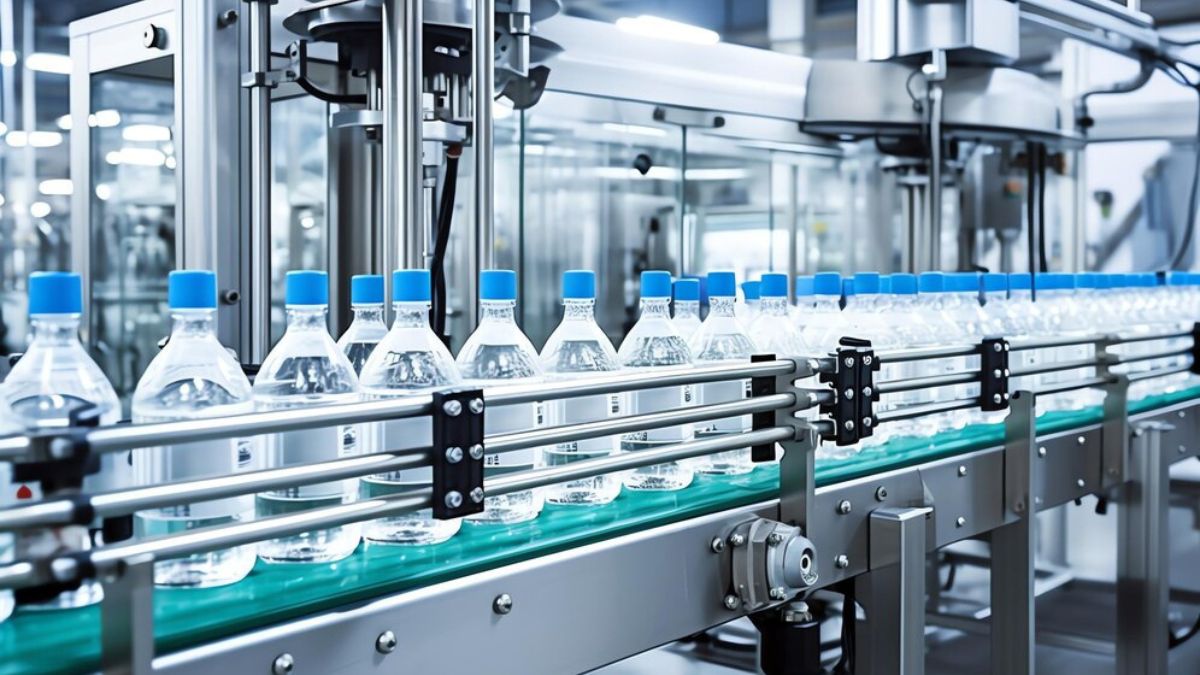Welcome to the world of hydration on-the-go! In a society where convenience is key, bottled water has become a staple for many. But have you ever stopped to think about the economics behind that refreshing bottle in your hand? Let’s dive into the fascinating realm of the Bottled Water Industry and explore its growth, impact, costs, regulations, and sustainability. Who knew something as simple as water could spark such an intriguing discussion? Let’s quench our thirst for knowledge together!
The Growth and Popularity of Bottled Water
Over the past few decades, there has been a remarkable surge in the consumption of bottled water worldwide. What was once considered a luxury or convenience has now become a ubiquitous presence in our daily lives. Bottled water is no longer just an option; it’s often the go-to choice for many consumers.
The growth of the bottled water industry can be attributed to various factors such as changing lifestyle trends, increased health consciousness among consumers, and aggressive marketing strategies by leading brands. Whether it’s for hydration on-the-go, perceived purity over tap water, or simply out of habit, people are turning to bottled water more than ever before.
With an array of options available – from natural spring waters to flavored sparkling varieties – there’s something for every taste preference and occasion. The convenience factor cannot be overlooked either; grab-and-go bottles have become a staple in gyms, offices, and even at social gatherings.
As society continues to prioritize health and wellness, it comes as no surprise that bottled water remains a popular choice among individuals of all ages. Its accessibility and diverse offerings have solidified its place as a booming industry with seemingly limitless potential for growth.
The Environmental Impact of Bottled Water
The environmental impact of bottled water is a hot topic in today’s world. With millions of plastic bottles being used every day, the issue of waste disposal and recycling becomes crucial. Many of these bottles end up in landfills or oceans, taking hundreds of years to decompose.
Moreover, the production and transportation of bottled water contribute to carbon emissions, further exacerbating climate change. The extraction of groundwater for bottling purposes can also deplete local water sources, impacting ecosystems and communities relying on them.
Efforts are being made by some companies to use more eco-friendly packaging materials like biodegradable plastics or recycled PET. However, the best solution lies in reducing our reliance on single-use plastics altogether and opting for sustainable alternatives like reusable bottles or filtered tap water systems. The choice is clear: we must prioritize the health of our planet over convenience when it comes to consuming bottled water.
The Cost of Bottled Water for Consumers
When it comes to the cost of bottled water for consumers, one might not realize the financial impact of this seemingly small purchase. On a day-to-day basis, buying bottled water can add up quickly, especially for those who rely on it as their primary source of hydration.
While the convenience of grabbing a bottle on-the-go is undeniable, the price per gallon of bottled water far exceeds that of tap water. Consumers often pay hundreds or even thousands times more for bottled water compared to what they would pay for tap water.
Despite the perception that all bottled waters are equal in quality, prices can vary significantly depending on branding and packaging. Premium brands and specialty waters can come with hefty price tags, making them a luxury item rather than a basic necessity.
For budget-conscious consumers looking to save money in the long run, investing in reusable bottles and opting for filtered tap water alternatives could be a more economical choice over time.
Economic Benefits for the Bottled Water Industry
The bottled water industry reaps significant economic benefits, contributing to job creation and revenue generation. From manufacturing the bottles to bottling the water, numerous jobs are supported across various sectors. Additionally, marketing and distribution channels further boost employment opportunities.
As consumer demand for bottled water continues to rise, suppliers experience steady growth in sales volume. This surge in demand translates into increased profits for companies involved in the production and distribution of bottled water products.
Moreover, the industry’s economic impact extends beyond just direct sales. Ancillary services such as advertising agencies, transportation companies, and packaging providers also benefit from the thriving bottled water market.
The economic landscape surrounding bottled water presents a dynamic environment with ample opportunities for growth and innovation within this profitable industry.
Government Regulations on the Bottled Water Industry
Government regulations play a crucial role in overseeing the bottled water industry. These regulations aim to ensure that bottled water is safe for consumption and meets quality standards set by authorities. From labeling requirements to production practices, there are strict guidelines in place to safeguard consumer health.
Regulations also address environmental concerns related to packaging and waste management. Many governments are implementing measures to reduce plastic usage and encourage recycling within the bottled water sector. By enforcing these rules, authorities strive to minimize the industry’s impact on the environment.
In addition, government bodies monitor pricing strategies within the bottled water market to prevent unfair practices or price gouging. This oversight aims to protect consumers from exploitation and promote fair competition among companies in the industry.
Government regulations serve as a vital tool in maintaining transparency, accountability, and sustainability within the bottled water industry. These measures help uphold standards of safety, quality, and ethical business conduct throughout the supply chain.
Alternatives to Bottled Water
As awareness about environmental issues grows, more people are seeking alternatives to bottled water. One popular choice is using reusable water bottles made from materials like stainless steel or glass. These eco-friendly options help reduce plastic waste and can save you money in the long run.
Another alternative is investing in a home water filtration system. This allows you to have access to clean and safe drinking water without contributing to single-use plastic consumption. Filter pitchers, faucet attachments, and under-sink systems are all effective ways to purify your tap water.
For those on the go, carrying a refillable bottle and filling it up at public hydration stations or restaurants that offer free filtered water can be a convenient solution. Many establishments now promote sustainability by providing free refills as part of their commitment to reducing waste.
Exploring these alternatives not only benefits the environment but also promotes healthier habits for both individuals and our planet as a whole.
Conclusion: Is the bottled water industry sustainable?
As we have delved into the economics and impact of the bottled water industry, it raises a crucial question: Is this industry sustainable in the long run? With increasing awareness about environmental concerns and the availability of more eco-friendly alternatives, such as reusable bottles and home filtration systems, the future of the bottled water industry might face challenges.
Consumers are becoming more conscious about their choices, not only for their health but also for the planet. It is essential for businesses in the bottled water industry to adapt to these changing preferences by offering more sustainable packaging options and reducing their carbon footprint.
While there are economic benefits to the bottled water industry, sustainability should be at its core moving forward. By embracing innovation and prioritizing environmental responsibility, companies can strive towards a more sustainable future while meeting consumer demands. Only time will tell if the bottled water industry can evolve and thrive in a world that values both convenience and sustainability.










